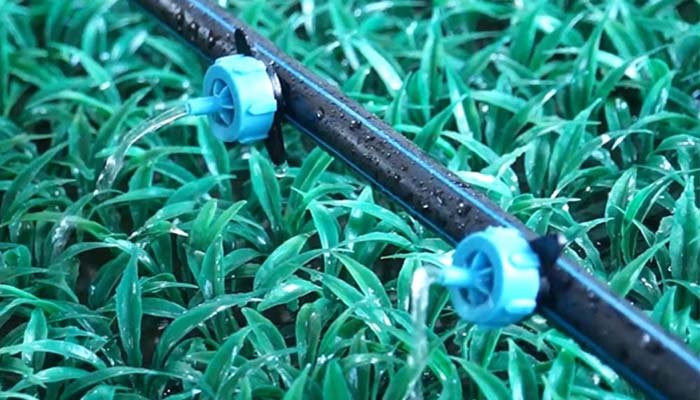The Function of Irrigation Disc Filters
Irrigation disc filters work by trapping and filtering out particles from the water flowing through them. They consist of several circular discs stacked together, and each disc has small grooves that trap and filter out particles. As water flows through the discs, the particles are trapped in the grooves, allowing the filtered water to pass through the discs and continue its journey through the irrigation system.
Types of Irrigation Disc Filters
There are two types of disc filters commonly used in irrigation systems: manual and automatic. Manual disc filters require the user to disassemble the filter and clean the discs manually. Automatic disc filters, on the other hand, have a self-cleaning mechanism that periodically flushes the filter, eliminating the need for manual cleaning.
Why Disc Filters Require Periodic Disassembly and Cleaning
While disc filters are highly efficient in filtering out particles, they require periodic disassembly and cleaning to maintain their effectiveness. Over time, the grooves in the discs become clogged with particles, reducing the filter’s flow rate and filtering capacity. If not cleaned regularly, the filter may become completely clogged, leading to reduced irrigation system performance and potentially damaging the emitters, nozzles, and sprinklers.
Signs That Indicate a Need for Disc Filter Cleaning
There are several signs that indicate a need for disc filter cleaning, including reduced water flow, increased pressure, and reduced irrigation system performance. If you notice any of these signs, it’s essential to check and clean the disc filter promptly.
Steps to Clean Irrigation Disc Filters
Cleaning irrigation disc filters is a simple process that can be done by following a few steps:
- Turn off the water supply to the irrigation system.
- Remove the filter housing cover and remove the discs.
- Clean each disc individually, removing any particles that are trapped in the grooves.
- Reassemble the filter and reinstall it in the system.
It’s important to note that the cleaning process may vary depending on the type of filter and the manufacturer’s recommendations.
Proper Maintenance of Disc Filters
In addition to periodic cleaning, proper maintenance of disc filters is essential for optimal performance. Some tips for maintaining disc filters include:
- Regularly inspecting the filter for signs of wear and tear, such as cracks or damage to the discs or housing.
- Checking the filter’s pressure gauges regularly to monitor its performance.
- Following the manufacturer’s recommended maintenance schedule.
- Flushing the irrigation system before and after the growing season to remove any debris or sediment buildup.
By following these maintenance tips, you can help ensure that your disc filters perform optimally and have a longer lifespan.
Common Mistakes to Avoid During Disc Filter Cleaning
While cleaning disc filters is a simple process, there are some common mistakes to avoid, including:
- Using abrasive cleaning tools, such as wire brushes, that can damage the discs.
- Reassembling the filter improperly can result in leaks or reduced performance.
- Neglecting to wear gloves or other protective gear while handling the filter, which can lead to injuries or exposure to harmful chemicals.
By avoiding these common mistakes, you can help ensure that your disc filters are cleaned properly and safely.
Advantages of Regular Disc Filter Maintenance
Regular maintenance of disc filters offers several advantages, including:
- Improved irrigation system performance and efficiency.
- Increased lifespan of the filter and other components of the irrigation system.
- Reduced risk of clogging or damage to the emitters, nozzles, and sprinklers.
- Lower maintenance and replacement costs in the long run.
By regularly maintaining your disc filters, you can help ensure that your irrigation system runs smoothly and efficiently, resulting in healthier crops and landscapes.
Conclusion
Disc filters are essential components of irrigation systems, but they require periodic disassembly and cleaning to maintain their effectiveness. By following the manufacturer’s recommended maintenance schedule and avoiding common cleaning mistakes, you can help ensure that your disc filters perform optimally and have a longer lifespan. Regular maintenance of disc filters offers several advantages, including improved irrigation system performance, increased lifespan of components, and lower maintenance and replacement costs in the long run.
FAQs
- How often should disc filters be cleaned?
- Disc filters should be cleaned periodically, depending on the manufacturer’s recommended maintenance schedule, or as needed based on reduced system performance or other signs of clogging.
- Can I use wire brushes to clean my disc filters?
- No, wire brushes or other abrasive cleaning tools can damage the discs and reduce the filter’s effectiveness. Use soft bristle brushes or a gentle stream of water to clean the discs.
- What are some signs that indicate a need for disc filter cleaning?
- Signs that indicate a need for disc filter cleaning include reduced water flow, increased pressure, and reduced system performance.
- How can I maintain my disc filters properly?
- You can maintain your disc filters properly by regularly inspecting them for wear and tear, following the manufacturer’s recommended maintenance schedule, and flushing the irrigation system before and after the growing season to remove any debris or sediment buildup.
- What are the advantages of regular disc filter maintenance?
- Regular disc filter maintenance offers several advantages, including improved system performance and efficiency, increased lifespan of components, and lower maintenance and replacement costs in the long run.


